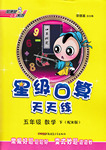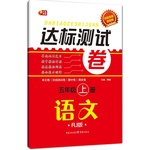题目内容
【题目】假定英语课上老师要求同桌之间交换修改作文,请你修改你同桌写的以下作文。文中共有10处语言错误,每句中最多有两处。每处错误仅涉及一个单词的增加、删除或修改。
增加:在缺词处加一个漏字符号(︿),并在其下面写出该加的词。
删除:把多余的词用斜线(\)划掉。
修改:在错的词下划一横线,并在该词下面写出修改后的词。
注意:1. 每处错误及其修改均仅限一词;
2. 只允许修改10处,多者(从第11处起)不计分。
Last summer I did some fruit-picking. It is pretty hard work. I had to start in 7 am and pick for a good eight hour. But it was such cheerful that we had great fun. Some of we had guitars, so in the evenings we had barbecues and played a bit music together. I only got about $80 a week, but at the least they gave me all my meals, and the food was not that awfully. Basic accommodation was also supplying. Still, I’m afraid I won’t be going fruit-picking this summer, because I’ve got a temporary job in town what pays better.
【答案】
【1】is---was
【2】in---at
【3】hour---hours
【4】such---so
【5】we---us
【6】a bit后加of
【7】去掉at the least中的the
【8】awfully---awfull
【8】supplying---supplied
【10】what---that/which
【解析】
试题分析:去年夏天,作者摘水果的故事。
【1】is---was 根据前面的Last summer可知用一般过去时态,故把is---was。
【2】in---at 在几点钟用介词at,故把in---at。
【3】hour---hours 句意:八小时。故把hour---hours。
【4】such---so cheerful是形容词,故把such---so。
【5】we---us 介词后面代词用宾格,故把we---us。
【6】a bit后加of a bit of 修饰名词,故在a bit后加of。
【7】去掉at the least中的the 固定词组:at least至少。故去掉at the least中的the。
【8】awfully---awfull 形容词作表语,故把awfully---awfull。
【8】supplying---supplied 句意:基本住宿也被提供。故把supplying---supplied。
【10】what---that/which 此处a temporary job做先行词,指物,后面的定语从句缺少主语和引导词,故把what---that/which。
【知识拓展】
so和such的区分
so (adv.)表示“如此”、“这样”的意思.用作副词,修饰形容词和副词.主要结构有:
1.so +adj.+a/an +可数名词单数+that从句
2.so+adj./adv.+that从句
3.so+many/few/much/little+复数可数名词+that从句
such(adj.)表示“如此”“这样”的意思.用作形容词,修饰名词.主要结构有:
1.such+a/an+adj.+单数可数名词+that从句
2.such+adj.+不可数名词+that从句
3.such+adj.+复数可数名词+that从句

 星级口算天天练系列答案
星级口算天天练系列答案 芒果教辅达标测试卷系列答案
芒果教辅达标测试卷系列答案